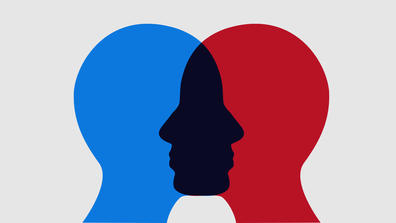|
What elicits empathy in our hearts? Is it hearing the stories of thousands who are suffering, which evokes within us a sense of justice and charity? According to psychological studies and research, the greatest factor that garners empathy are the names and faces of the victims struggling, not their struggle itself. When it comes to appealing to a person’s pathos, the scale of an issue is irrelevant; what matters is that the person can feel a human connection to those who are being affected.
Dan Ariely, the President elect of the Society for Judgement and Decision Making, who also received a doctorate degree in cognitive psychology from the University of North Carolina, explains a prominent example of this phenomenon that he had experienced. He recalls how, in September of 2008, there were two new stories that grabbed his attention. The first was the headline of the New York Times; it was a report of the damages in Texas from Hurricane Ike, which had ravaged the state and left millions of people without a source of electricity. The second was a story about a young male, Mark Schneider, who was found attacking his mother in the head with a baseball bat. While both stories were troubling and elicited empathy, Ariely noted that the media focused on the second story more. This is because people could connect with the story since they were able to personally see the damage done to an identifiable woman, a woman with a name and a face. While the news about Texas was similarly tragic, and even affected more individuals, people were unable to empathize as much because they didn’t feel an interpersonal connection. This reference poses a segway into the dangers of a phenomenon known as “empathy traps.” An empathy trap is a situation in which showing empathy enables an individual or group to take advantage of you for your good graces. Many people fall victim to empathy traps when deciding what kind of organizations to whom they want to donate their money. Frequently, large corporations will use empathy traps to bring in more donations from generous, empathetic hearts, and they will take advantage of those donations to further their own agenda. One of the most prominent examples of this is when people donate or volunteer to help out developing nations under the guide of a large corporation. Most of the time, the work done by those groups for the developing nation does not benefit the developing country; in fact, there is an ongoing debate that mission trips, which are held to give volunteers a chance to help out in developing nations, are actually very harmful to those vulnerable communities. While not all volunteer organizations participate in such traps, the bottom line is, when you are looking to donate your time or money, objectively consider if you are effectively contributing to the bigger cause. Remember, it might be tempting to pay more attention to the one, but you do not want to ignore the many. That’s why it’s important to research which organizations you are planning to donate to or volunteer for, and make sure that they are an organization you can trust to help as many people as possible.
0 Comments
Leave a Reply. |
AuthorsJordan Hannan and Jordan Lappin Archives
January 2023
Categories |
Proudly powered by Weebly


 RSS Feed
RSS Feed